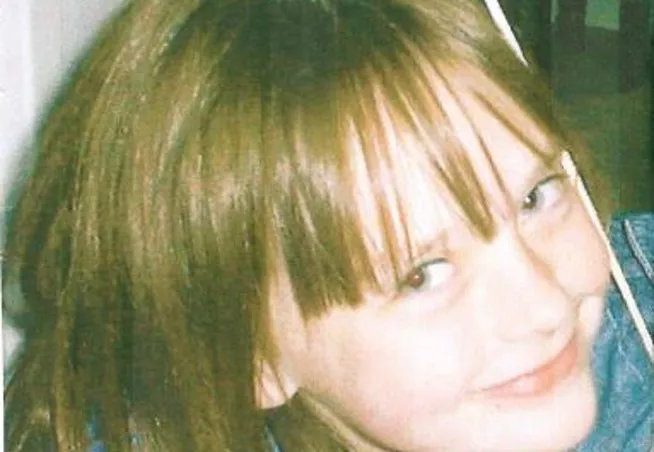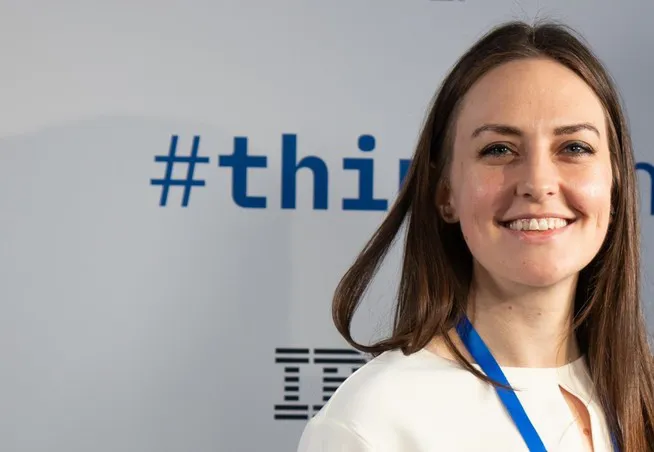Heather Pollard, Blockchain Software Developer
When Heather was young, she dreamed of being a writer, thinking up stories of faraway lands. She also loved puzzles and board games. One of her favourite subjects at school was Art and Design, splashing paint across the page to make it more beautiful! Now Heather combines all of these interests as a software developer, writing code rather than stories, bringing her work to life in different pictures and sequences to solve technical problems.
Age: 28
Job title: Blockchain Software Developer
Company employed by: IBM
When you were a child, what did you dream you’d be when you grew up? A writer.
What is the biggest impact your work will or could have in the future?
Blockchain isn’t being fully utilised yet, but it’s capabilities and potential are far reaching across multiple industries. I’d love to see blockchain technology underpin healthcare industries across the world.
What excites you most about STEM?
We’ll never be done. There’ll always be another chemical reactions to understand, another affliction to overcome and another line of code to write. We’re always going to need inquisitive people solving technical problems.
What do you love about your job? What would you change?
I have a love/hate relationship with the never ending amount of work to do that comes with developing software. I’m never bored, but software is never finished either, especially for perfectionists. I’d change the amount of talking we do about what we’re going to do, and just do more of it.
What gives you the most job satisfaction?
Digging down to the route of a technical problem and writing the code to fix it.
What does a typical day at work involve?
I lead a team of engineers that develop tools for making blockchain applications easier to write for other software engineers. My time is split between managing and organising the team’s priorities and writing code for bug fixes and new features in the tools. My typical day includes meeting with managers, other team leads and developers to understand and plan our code changes, how we’ll maintain it and when we’ll release it. I run a daily “scrum” with my team for everyone to share what we’re all up to, which includes a team member in North Carolina. Somewhere in between the meetings/planning I might be lucky enough to quietly write some code!






What’s the most unexpected thing about your job?
I still don’t technically have a qualification for the job I do today. All of the work (code) I contribute is free and accessible (open source software). Anyone with a laptop can teach themselves programming, for free, and contribute to, not only to the blockchain tooling code my team writes, but the multitude of open source software out there, solving every kind of problem you can think of.
Did you have any role models when you were younger? What inspired you to do the job you’re doing now?
I didn’t really know what a Software Developer was until I was one, and in some ways I’m still figuring it out! It was a job role that became the next step after specialising in Computational Chemistry at the end of my degree.
Any influential toys during childhood?
Lego! Puzzles, Board Games, Chess.
Your favourite subjects at school?
Art and Design, Maths.
Qualifications (school/college/university):
My chosen GCSEs were Geography and French; as well as being part of one of the few classes at the time that took triple science GCSEs. My A Levels were a very broad English (Language), Maths (with Statistics) and Science (Chemistry). I have a GNVQ and AS Level in Art and Design.
Your reason for choosing this career?
I was never any good at lab chemistry but I enjoyed the theoretical side, specifically quantum mechanics and astrochemistry. This involved running bash scripts on high performance computers, and I wrote my thesis using a programmable document preparation system, which was luckily enough to convince IBM I could learn how to develop software.
Tell me about your career path to date?
Masters in Chemistry at the University of Sheffield -> IBM as a Graduate Software Developer for Spectrum Virtualize Storage Systems -> IBM Blockchain Software Developer.
If you could have any job what would it be? How does it differ from what you’re doing?
If I were to accidentally continue being a “Master of None”, I’d ideally spend my time split between running an independent cinema and researching theoretical astrochemistry.
Your advice to a young person considering a career in STEM?
If it feels right, go for it! You can change your mind later. What you choose to study/work for now doesn’t define the rest of your life. A good proportion of the jobs that we’ll be interviewing for in 20 years, don’t exist now.
